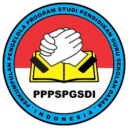Pengaruh Model Discovery Learning Terhadap Kemampuan Berpikir Kritis Siswa Sekolah Dasar (MI/SD)
DOI:
https://doi.org/10.35568/naturalistic.v7i2.3054Keywords:
model discovery learning, critical thinking abilityAbstract
The ability to think at a high level in the 21st century is certainly very important, especially in the world of education which is expected to be able to produce a superior generation who is ready to face problems in the future. According to the Ministry of Education and Culture (2021) that Higher Education personnel and Indonesian students who are part of the productive age need to prepare themselves early by honing and improving 5C skills. This is in line with the construction of 5C skills consisting of Complex Problem Solving, Critical Thinking, Creativity, Coordinating with Others, Cognitive Flexibility. Critical thinking skills can be developed through a learning model, one of which is a discovery-based learning model (discovery learning). This study aims to determine the influence of the discovery learning model on the critical thinking ability of elementary school (MI / SD) students. This research uses a quantitative approach with quasi-experimental research methods with a nonequivalent control group design design. This study sampled 48 students. The data collection technique uses a question instrument in the form of a description consisting of 10 valid and reliable questions. Data analysis techniques for normality tests use kolmogorov-smirnov technique, for homogeneity tests using levene tests with test criteria based on mean and t-tests for hypothesis testing. To find out whether or not there is an influence on students' critical thinking skills, a t test is carried out using an independent sample t test. From the test results of the pretest hypothesis count = 0.882 and ttabel = 1.67, it can be concluded that there is no difference between the pretest results of the experimental class and the pretest results of the control class. As for testing the posttest hypothesis, the calculated value = 6.455 and ttabel = 1.67 were obtained, so it can be concluded that there is a difference between the posttest results of the experimental class and the posttest results of the control class. This can be interpreted to mean that the ability to think critically using the discovery learning model is higher than the conventional model (cooperative model).
Downloads
References
Hasnan, Syiti Mutia, dkk. 2020. “Pengaruh
Penggunaan Model Discovey
Learning dan
Motivasi Terhadap Kemampuan Berpikir
Kritis Peserta Didik Sekolah
Dasar”. Jurnal Basicedu. Vol. 4. No.
Lieung, Karlina Wong. 2019. “Pengaruh
Model Discovery Learning
Terhadap Keterampilan Berpikir
Kritis Siswa Sekolah Dasar”.
MUSAMUS Journal of Primary
Education. Vol. 1. No. 2.
Lismaya, Lilis. 2019. Berpikir Kritis dan PBL
(Project Based Learning).
Surabaya: Media Sahabat
Cendikia.
Nafias, Dian dan Wardono. 2019. “Model
Pembelajaran Dsicovery Learning
Berbantuan Multimedia untuk
Meningkatkan Kemampuan
Berpikir Kritis Siswa”. PRISMA.
Prosiding Seminar Nasional
Matematika.
PG DIKDAS. 2020. Mengenal Model
Pembelajaran Discovery Learning.
Diakses pada 28 April 2021 pukul
:18 wib.
(https://pgdikdas.kemdikbud.go.i
d/read-news/mengenal-modelpembelajaran-discovery-learning).
Rikatsih, Nindynar, dkk. 2021. Metodologi
Penelitian di Berbagai Bidang.
Bandung: Media Sains Indonesia.
Sugiyono. 2016. Metode Penelitian
Kuantitatif, Kualitatif dan R&D.
Bandung: Alfabeta.
Tabun, Yohana Febriana, dkk. 2022. Teori
Pembelajaran. Jakarta: Yayasan
Penerbit Muhammad Zaini.
Wahyuningsih, Yuli, dkk. 2019. “HOTS
(High Order Thinking Skils) dan
Kaitannya dengan Keterampilan
Generik Sains dan Pembelajaran
IPA SD”. Publikasi Ilmiah.
Universitas Muhammadiyah
Semarang.
Wijaya, H. 2018. Analisis Data Kualitatif
Ilmu Pendidikan Teologi. Sulawesi
Utara: Sekolah Tinggi Jaffray.
Zulastri. 2019. Skripsi. “Pengaruh Model
Discovery Learning Terhadap
Kemampuan Berpikir Tingkat
Tinggi Siswa di MI Sabilil Khoir
Porong-Sidoarjo”. Universitas
Islam Negeri Maulana Malik
Ibrahim Malang
Downloads
Published
How to Cite
Issue
Section
License
Copyright (c) 2023 Naturalistic: Jurnal Kajian dan Penelitian Pendidikan dan Pembelajaran

This work is licensed under a Creative Commons Attribution-NonCommercial-NoDerivatives 4.0 International License.
Copyright of Journal Naturalistic : Jurnal Kajian Penelitian Pendidikan dan Pembelajaran (e-ISSN:2548-8589, p-ISSN:2528-2921).
Open Access Policy
This journal provides immediate open access to its content on the principle that making research freely available to the public supports a greater global exchange of knowledge.
This journal is open access journal which means that all content is freely available without charge to users or / institution. Users are allowed to read, download, copy, distribute, print, search, or link to full text articles in this journal without asking prior permission from the publisher or author. This is in accordance with Budapest Open Access Initiative.










